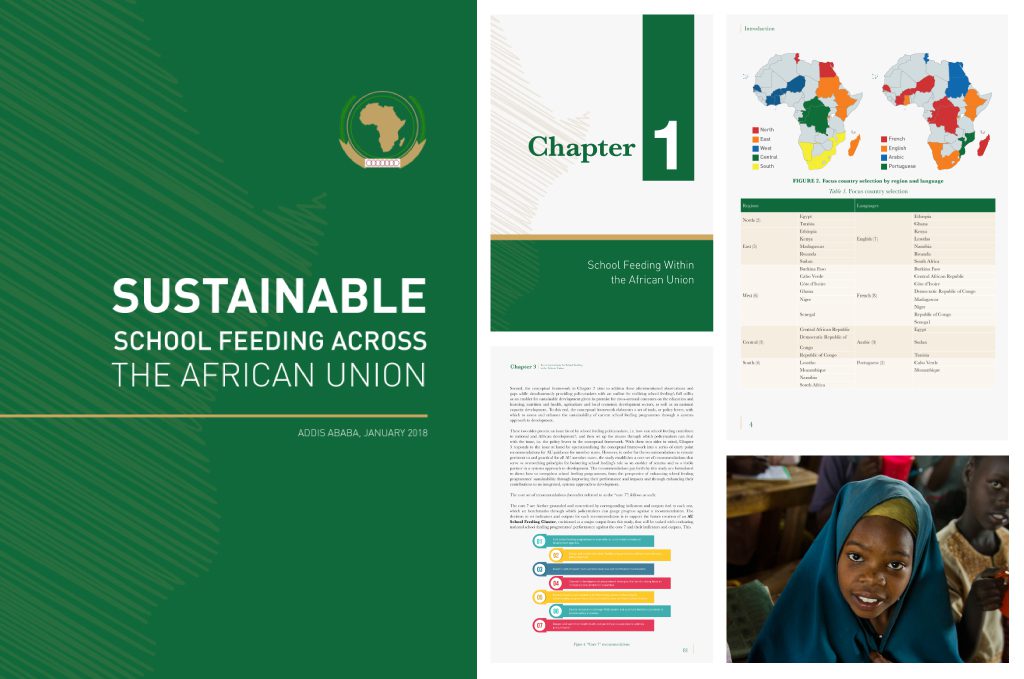
The African union launched the study “Sustainable school feeding across the African Union”, during the celebration of the African Day of School Feeding in Harare, Zimbabwe, on 1 March. The study shows that the home-grown school feeding model has multiple benefits for community development, social protection and employment creation, playing an important role in achieving SDG2, Zero Hunger. The document also proposes seven practical recommendations for African Union countries to improve and scale-up school feeding initiatives.
African Ministers of Education had already endorsed the report and findings of the study in October. The results of the study were presented during the Second Ordinary session of Africa Minister’s Meeting on Education, Science and Technology, in Cairo, Egypt. Before that, the study main findings and recommendations were validated in May 2017 by 90 representatives of 25 African countries.
The WFP Centre of Excellence against Hunger, in collaboration with WFP Africa Office, carried out this study, after the African Union Commission Department of Human Resources, Science and Technology undertook a mission to explore the Brazilian experience on home-grown school feeding, as a means for promoting children’s access, retention and quality of education. As a result of this study visit to Brazil, the AU Summit of January 2016 took a decision to undertake the school feeding study and established the Africa Day of School Feeding.
The core set of recommendations of the African Union study:
1. Link school feeding programmes to international, continental and national development agendas.
2. Design and implement school feeding programmes to achieve cross-sectoral policy objectives.
3. Invest in and empower multi-sectoral response and coordination mechanisms.
4. Commit to developmental procurement strategies that exert a strong focus on increasing local production capacities.
5. Innovate financial arrangements by diversifying sources of financing for school feeding programmes and/or putting into place co-financing mechanisms.
6. Devote resources to stronger M&E systems and automate feedback processes to improve policy outcomes.
7. Deepen and learn from South-South and pan-African cooperation to optimise policy impacts.
The study was coordinated by the WFP Centre of Excellence against Hunger, in collaboration with WFP Africa Office, and executed by the Economic Policy Research Institute (EPRI), based in Cape Town.
Download the African Union Study:
English:
Complete Study: SUSTAINABLE SCHOOL FEEDING_ENGLISH
Summary: SUSTAINABLE SCHOOL FEEDING_SUMMARY
French:
Complete Study: SUSTAINABLE SCHOOL FEEDING[FRENCH]_FINAL




